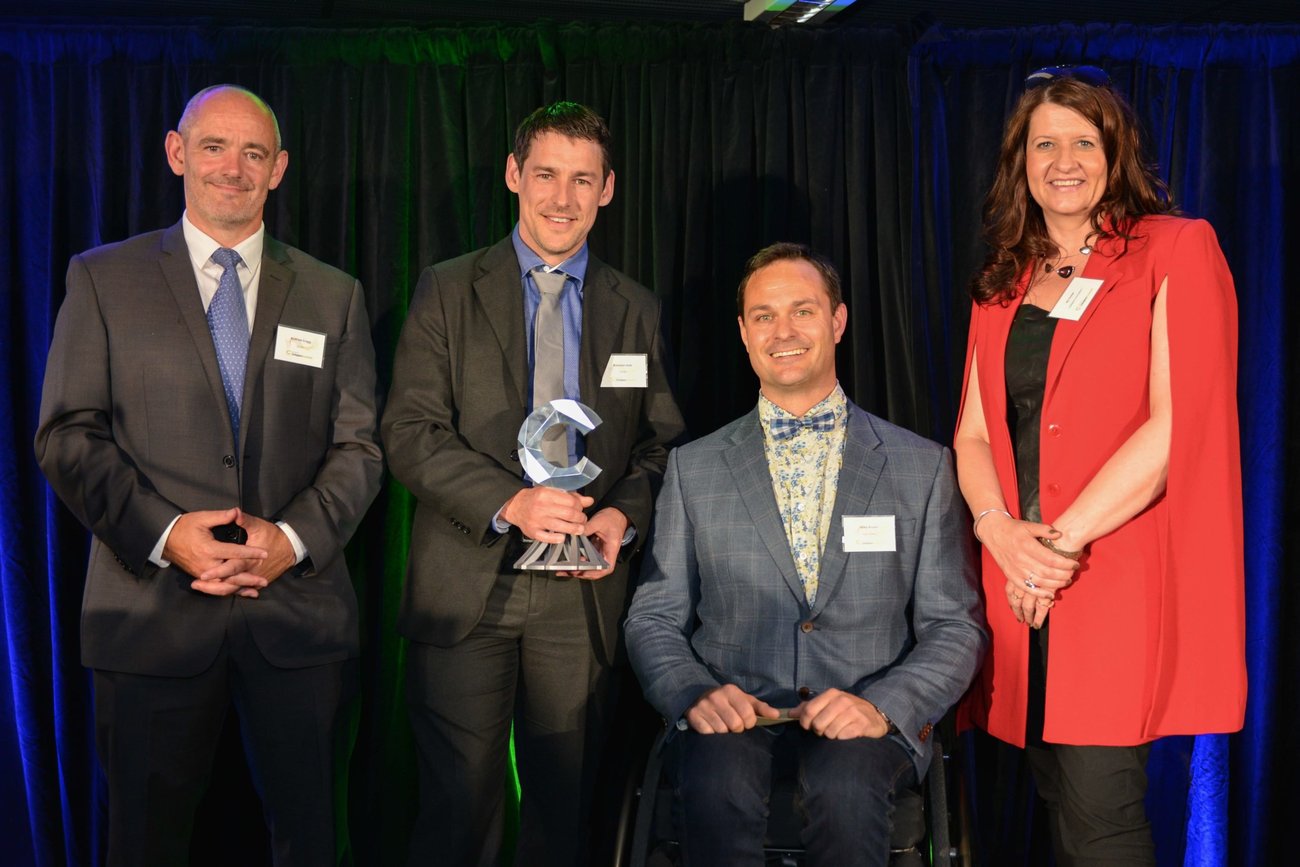How 2017 Callaghan Innovation C-Prize winner Uri-Go uses tech to make lives better

Coming out on top of this year’s C-Prize – one of New Zealand’s toughest innovation competitions – certainly means a lot to Uri-Go’s Mike Brown. After all, it means his company is getting $100,000 in business support, not to mention the professional recognition from peers. “It’s fantastic,” he says. “It means we have the ability to change lives, which is the most important factor.”
Brown says the C-Prize win was “completely” surprising, adding “it’s kind of humbling.” Hopefully, Brown says, it’ll also attract further capital and interest from potential employees or other entrepreneurs who want to get involved.
“Everyone put an enormous amount of effort in,” says Brown of the other teams, stressing again how impressive they all were.
Brown says the story of Uri-Go goes back about five years, when he broke his back. He says the injury had far more effects than just having to use a wheelchair – which surprised him. “With a spinal cord injury, I can’t feel my bladder.”
But the situation isn’t just embarrassing, Brown says – it’s also dangerous. A solution was needed. And, thus, the germ of an idea for Uri-Go was born.
A world-first technology, the Uri-Go is actually pretty simple to wrap one’s head around. According to Uri-Go’s Brendon Hale, it can sense the state of the bladder via a slim, discreet sensor that can be worn on the beltline, and which sends updates to a smartphone.
Brown says the need was there, but it was the C-Prize which helped bring the Uri-Go team together. “The C-Prize was the instigator of that. It bandied us together to build a team.”
With the $100,000 in support that comes from winning the C-Prize, brown says the plan is to continue working on perfecting Uri-Go’s technology, then roll it out, possibly with a first focus on the New Zealand market. Hale adds that, since it solves a global problem, the market could also be global. “It’s an enormous market.”
No matter what happens next, Brown says he has learned several lessons that other entrepreneurs could learn from, too. “Believe it is possible,” he says. “If the problem is big enough and interesting enough, you can find the right people to help find the solution.”
Hale adds on to that, stressing that it’s good to be audacious. And, “if you ask, you often get help. And we’ve been asking a lot.”




